- Home
- Gillian Flynn
Gone Girl: A Novel Page 45
Gone Girl: A Novel Read online
Page 45
My legs were weak when I went to tell Amy: I was no longer part of her story.
I showed her the manuscript, displayed the glaring title: Psycho Bitch. A little inside joke. We both like our inside jokes. I waited for her to scratch my cheeks, rip my clothes, bite me.
“Oh! What perfect timing,” she said cheerfully, and gave me a big grin. “Can I show you something?”
I made her do it again in front of me. Piss on the stick, me squatting next to her on the bathroom floor, watching the urine come out of her and hitting the stick and turning it pregnant-blue.
Then I hustled her into the car and drove to the doctor’s office, and I watched the blood come out of her—because she isn’t really afraid of blood—and we waited the two hours for the test to come back.
Amy was pregnant.
“It’s obviously not mine,” I said.
“Oh, it is.” She smiled back. She tried to snuggle into my arms. “Congratulations, Dad.”
“Amy—” I began, because of course it wasn’t true, I hadn’t touched my wife since her return. Then I saw it: the box of tissues, the vinyl recliner, the TV and porn, and my semen in a hospital freezer somewhere. I’d left that will-destroy notice on the table, a limp guilt trip, and then the notice disappeared, because my wife had taken action, as always, and that action wasn’t to get rid of the stuff but to save it. Just in case.
I felt a giant bubble of joy—I couldn’t help it—and then the joy was encased in a metallic terror.
“I’ll need to do a few things for my security, Nick,” she said. “Just because, I have to say, it’s almost impossible to trust you. To start, you’ll have to delete your book, obviously. And just to put that other matter to rest, we’ll need an affidavit, and you’ll need to swear that it was you who bought the stuff in the woodshed and hid the stuff in the woodshed, and that you did once think I was framing you, but now you love me and I love you and everything is good.”
“What if I refuse?”
She put her hand on her small, swollen belly and frowned. “I think that would be awful.”
We had spent years battling for control of our marriage, of our love story, our life story. I had been thoroughly, finally outplayed. I created a manuscript, and she created a life.
I could fight for custody, but I already knew I’d lose. Amy would relish the battle—God knew what she already had lined up. By the time she was done, I wouldn’t even be an every-other-weekend dad; I would interact with my child in strange rooms with a guardian nearby sipping coffee, watching me. Or maybe not even that. I could suddenly see the accusations—of molestation or abuse—and I would never see my baby, and I would know that my child was tucked away far from me, Mother whispering, whispering lies into that tiny pink ear.
“It’s a boy, by the way,” she said.
I was a prisoner after all. Amy had me forever, or as long as she wanted, because I needed to save my son, to try to unhook, unlatch, debarb, undo everything that Amy did. I would literally lay down my life for my child, and do it happily. I would raise my son to be a good man.
I deleted my story.
Boney picked up on the first ring.
“Pancake House? Twenty minutes?” she said.
“No.”
I informed Rhonda Boney that I was going to be a father and so could no longer assist in any investigation—that I was, in fact, planning to retract any statement I’d made concerning my misplaced belief that my wife had framed me, and I was also ready to admit my role in the credit cards.
A long pause on the line. “Hunh,” she said. “Hunh.”
I could picture Boney running her hand through her slack hair, chewing on the inside of her cheek.
“You take care of yourself, okay, Nick?” she said finally. “Take good care of the little one too.” Then she laughed. “Amy I don’t really give a fuck about.”
I went to Go’s house to tell her in person. I tried to frame it as happy news. A baby, you can’t be that upset about a baby. You can hate a situation, but you can’t hate a child.
I thought Go was going to hit me. She stood so close I could feel her breath. She jabbed me with an index finger.
“You just want an excuse to stay,” she whispered. “You two, you’re fucking addicted to each other. You are literally going to be a nuclear family, you do know that? You will explode. You will fucking detonate. You really think you can possibly do this for, what, the next eighteen years? You don’t think she’ll kill you?”
“Not as long as I am the man she married. I wasn’t for a while, but I can be.”
“You don’t think you’ll kill her? You want to turn into Dad?”
“Don’t you see, Go? This is my guarantee not to turn into Dad. I’ll have to be the best husband and father in the world.”
Go burst into tears then—the first time I’d seen her cry since she was a child. She sat down on the floor, straight down, as if her legs gave out. I sat down beside her and leaned my head against hers. She finally swallowed her last sob and looked at me. “Remember when I said, Nick, I said I’d still love you if? I’d love you no matter what came after the if?”
“Yes.”
“Well, I still love you. But this breaks my heart.” She let out an awful sob, a child’s sob. “Things weren’t supposed to turn out this way.”
“It’s a strange twist,” I said, trying to turn it light.
“She won’t try to keep us apart, will she?”
“No,” I said. “Remember, she’s pretending to be someone better too.”
Yes, I am finally a match for Amy. The other morning I woke up next to her, and I studied the back of her skull. I tried to read her thoughts. For once I didn’t feel like I was staring into the sun. I’m rising to my wife’s level of madness. Because I can feel her changing me again: I was a callow boy, and then a man, good and bad. Now at last I’m the hero. I am the one to root for in the never-ending war story of our marriage. It’s a story I can live with. Hell, at this point, I can’t imagine my story without Amy. She is my forever antagonist.
We are one long frightening climax.
AMY ELLIOTT DUNNE
TEN MONTHS, TWO WEEKS, SIX DAYS AFTER THE RETURN
I was told love should be unconditional. That’s the rule, everyone says so. But if love has no boundaries, no limits, no conditions, why should anyone try to do the right thing ever? If I know I am loved no matter what, where is the challenge? I am supposed to love Nick despite all his shortcomings. And Nick is supposed to love me despite my quirks. But clearly, neither of us does. It makes me think that everyone is very wrong, that love should have many conditions. Love should require both partners to be their very best at all times. Unconditional love is an undisciplined love, and as we all have seen, undisciplined love is disastrous.
You can read more about my thoughts on love in Amazing. Out soon!
But first: motherhood. The due date is tomorrow. Tomorrow happens to be our anniversary. Year six. Iron. I thought about giving Nick a nice pair of handcuffs, but he may not find that funny yet. It’s so strange to think: A year ago today, I was undoing my husband. Now I am almost done reassembling him.
Nick has spent all his free time these past months slathering my belly with cocoa butter and running out for pickles and rubbing my feet, and all the things good fathers-to-be are supposed to do. Doting on me. He is learning to love me unconditionally, under all my conditions. I think we are finally on our way to happiness. I have finally figured it out.
We are on the eve of becoming the world’s best, brightest nuclear family.
We just need to sustain it. Nick doesn’t have it down perfect. This morning he was stroking my hair and asking what else he could do for me, and I said: “My gosh, Nick, why are you so wonderful to me?”
He was supposed to say: You deserve it. I love you.
But he said, “Because I feel sorry for you.”
“Why?”
“Because every morning you have to wake up and be you.”
I don’t have anything else to add. I just wanted to make sure I had the last word. I think I’ve earned that.
ACKNOWLEDGMENTS
I’ve got to start with Stephanie Kip Rostan, whose smart advice, sound opinions, and good humor have seen me through three books now. She’s also just really fun to hang out with. Thanks for all the excellent guidance over the years. Many thanks also to Jim Levine and Daniel Greenberg and everyone at Levine Greenberg Literary Agency.
My editor, Lindsay Sagnette, is a dream: Thank you for lending me your expert ear, for letting me be just the right amount of stubborn, for challenging me to do better, and for cheering me on during that last stretch—if it weren’t for you, I’d have remained “82.6 percent done” forever.
Much thanks to Crown publisher Molly Stern for the feedback, the support, the sage comments, and the endless energy.
Gratitude also to Annsley Rosner, Christine Kopprasch, Linda Kaplan, Rachel Meier, Jay Sones, Karin Schulze, Cindy Berman, Jill Flaxman, and E. Beth Thomas. Thanks as always to Kirsty Dunseath and the gang at Orion.
For my many questions about police and legal procedures, I turned to some very gracious experts. Thanks to my uncle, the Hon. Robert M. Schieber, and to Lt. Emmet B. Helrich for always letting me run ideas by them. Huge thanks this round to defense attorney Molly Hastings in Kansas City, who explained her job with great grace and conviction. And endless gratitude to Det. Craig Enloe of the Overland Park Police Department for answering my 42,000 e-mails (a modest estimate) over the past two years with patience, good humor, and exactly the right amount of information. Any mistakes are mine.
Thanks, for many and varied reasons, to: Trish and Chris Bauer, Katy Caldwell, Jessica and Ryan Cox, Sarah and Alex Eckert, Wade Elliott, Ryan Enright, Mike and Paula Hawthorne, Mike Hillgamyer, Sean Kelly, Sally Kim, Sarah Knight, Yocunda Lopez, Kameren and Sean Miller, Adam Nevens, Josh Noel, Jess and Jack O’Donnell, Lauren “Fake Party We’re Awesome” Oliver, Brian “Map App” Raftery, Javier Ramirez, Kevin Robinett, Julie Sabo, gg Sakey, Joe Samson, Katie Sigelman, Matt Stearns, Susan and Errol Stone, Deborah Stone, Tessa and Gary Todd, Jenny Williams, Josh Wolk, Bill and Kelly Ye, Chicago’s Inner Town Pub (home of the Christmas Morning), and the unsinkable Courtney Maguire.
For my wonderful Missouri family—all the Schiebers, the Welshes, the Flynns, and branches thereof. Thanks for all the love, support, laughs, pickle rolls, and bourbon slush … basically for making Missouri, as Nick would say, “a magical place.”
I received some incredibly helpful feedback from a few readers who are also good friends. Marcus Sakey gave me sharp advice about Nick early on over beer and Thai food. David MacLean and Emily Stone (deareth!) were kind enough to read Gone Girl in the months leading up to their wedding. It doesn’t seem to have harmed you guys in the least, and it made the book a lot better, so thanks. Nothing will stop you from getting to the Caymans!
Scott Brown: Thanks for all the writing retreats during the Gone Girl Years, especially the Ozarks. I’m glad we didn’t sink the paddleboat after all. Thanks for your incredibly insightful reads, and for always swooping in and helping me articulate what the hell it is I’m trying to say. You are a good Monster and a wonderful friend.
Thanks to my brother, Travis Flynn, for always being around to answer questions about how things actually work. Much love to Ruth Flynn, Brandon Flynn, and Holly Bailey.
To my in-laws, Cathy and Jim Nolan, Jennifer Nolan, Megan, Pablo, and Xavy Marroquin—and all the Nolans and Samsons: I am very aware of how lucky I am to have married into your family. Thanks for everything. Cathy, we always knew you had one hell of a heart, but this past year proved it in so many ways.
To my parents, Matt and Judith Flynn. Encouraging, thoughtful, funny, kind, creative, supportive, and still madly in love after more than forty years. I am, as always, in awe of you both. Thanks for being so good to me and for always taking the time to harass strangers into buying my books. And thank you for being so lovely with Flynn—I become a better parent just watching you.
Finally, my guys.
Roy: Good kitty.
Flynn: Beloved boy, I adore you! Also, if you are reading this before the year 2024, you are too little. Put it down and pick up Frumble!
Brett: Husband! Father of my child! Dance partner, emergency grilled-cheese maker. The kind of fellow who knows how to pick the wine. The kind of fellow who looks great in a tux. Also a zombie-tux. The guy with the generous laugh and the glorious whistle. The guy who has the answer. The man who makes my child laugh till he falls down. The man who makes me laugh till I fall down. The guy who lets me ask all sorts of invasive, inappropriate, and intrusive questions about being a guy. The man who read and reread and reread and then reread, and not only gave advice, but gave me a bourbon app. You’re it, baby. Thanks for marrying me.
Two words, always.
ABOUT THE AUTHOR
GILLIAN FLYNN is the author of the New York Times bestseller Dark Places, which was a New Yorker Reviewers’ Favorite, Weekend TODAY Top Summer Read, Publishers Weekly Best Book of 2009, and a Chicago Tribune Favorite Fiction choice; and Dagger Award winner Sharp Objects, which was an Edgar nominee for Best First Novel, a BookSense pick, and a Barnes & Noble Discover selection. A former writer and critic for Entertainment Weekly, her novels have been published in twenty-eight countries. She lives in Chicago with her husband and son.
Sharp Objects
Chapter One
My sweater was new, stinging red and ugly. It was May 12 but the temperature had dipped to the forties, and after four days shivering in my shirtsleeves, I grabbed cover at a tag sale rather than dig through my boxed-up winter clothes. Spring in Chicago.
In my gunny-covered cubicle I sat staring at the computer screen. My story for the day was a limp sort of evil. Four kids, ages two through six, were found locked in a room on the South Side with a couple of tuna sandwiches and a quart of milk. They’d been left three days, flurrying like chickens over the food and feces on the carpet. Their mother had wandered off for a suck on the pipe and just forgotten. Sometimes that’s what happens. No cigarette burns, no bone snaps. Just an irretrievable slipping. I’d seen the mother after the arrest: twenty-two-year-old Tammy Davis, blonde and fat, with pink rouge on her cheeks in two perfect circles the size of shot glasses. I could imagine her sitting on a shambled-down sofa, her lips on that metal, a sharp burst of smoke. Then all was fast floating, her kids way behind, as she shot back to junior high, when the boys still cared and she was the prettiest, a glossy-lipped thirteen-year-old who mouthed cinnamon sticks before she kissed.
A belly. A smell. Cigarettes and old coffee. My editor, esteemed, weary Frank Curry, rocking back in his cracked Hush Puppies. His teeth soaked in brown tobacco saliva.
“Where are you on the story, kiddo?” There was a silver tack on my desk, point up. He pushed it lightly under a yellow thumbnail.
“Near done.” I had three inches of copy. I needed ten.
“Good. Fuck her, file it, and come to my office.”
“I can come now.”
“Fuck her, file it, then come to my office.”
“Fine. Ten minutes.” I wanted my thumbtack back.
He started out of my cubicle. His tie swayed down near his crotch.
“Preaker?”
“Yes, Curry?”
“Fuck her.”
Frank Curry thinks I’m a soft touch. Might be because I’m a woman. Might be because I’m a soft touch.
Curry’s office is on the third floor. I’m sure he gets panicky-pissed every time he looks out the window and sees the trunk of a tree. Good editors don’t see bark; they see leaves—if they can even make out trees from up on the twentieth, thirtieth floor. But for the Daily Post, fourth-largest paper in Chicago, relegated to the suburbs, there’s room to sprawl. Three floors will do, spreading relentlessly outward, like a spill, unnoticed among the carpet
retailers and lamp shops. A corporate developer produced our township over three well-organized years—1961–64—then named it after his daughter, who’d suffered a serious equestrian accident a month before the job was finished. Aurora Springs, he ordered, pausing for a photo by a brand-new city sign. Then he took his family and left. The daughter, now in her fifties and fine except for an occasional tingling in her arms, lives in Florida and returns every few years to take a photo by her namesake sign, just like Pop.
I wrote the story on her last visit. Curry hated it, hates most slice-of-life pieces. He got smashed off old Chambord while he read it, left his office smelling like raspberries. Curry gets drunk fairly quietly, but often. It’s not the reason, though, that he has such a cozy view of the ground. That’s just yawing bad luck.
I walked in and shut the door to his office, which isn’t how I’d ever imagined my editor’s office would look. I craved big oak panels, a window pane in the door—marked Chief—so the cub reporters could watch us rage over First Amendment rights. Curry’s office is bland and institutional, like the rest of the building. You could debate journalism or get a Pap smear. No one cared.
“Tell me about Wind Gap.” Curry held the tip of a ballpoint pen at his grizzled chin. I could picture the tiny prick of blue it would leave among the stubble.
“It’s at the very bottom of Missouri, in the boot heel. Spitting distance from Tennessee and Arkansas,” I said, hustling for my facts. Curry loved to drill reporters on any topics he deemed pertinent—the number of murders in Chicago last year, the demographics for Cook County, or, for some reason, the story of my hometown, a topic I preferred to avoid. “It’s been around since before the Civil War,” I continued. “It’s near the Mississippi, so it was a port city at one point. Now its biggest business is hog butchering. About two thousand people live there. Old money and trash.”

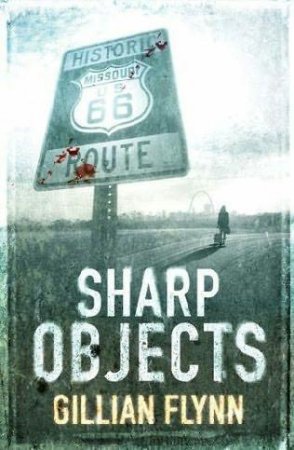 Sharp Objects
Sharp Objects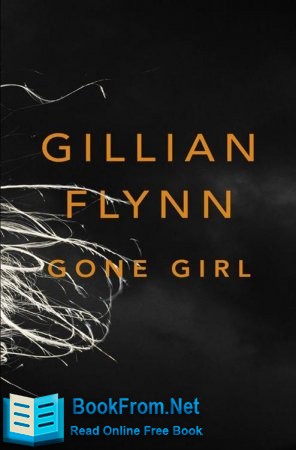 Gone Girl
Gone Girl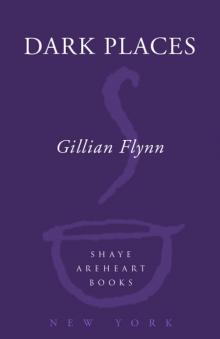 Dark Places
Dark Places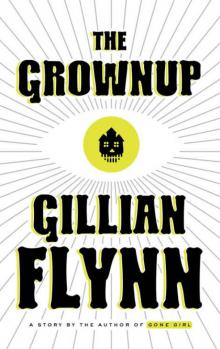 The Grownup
The Grownup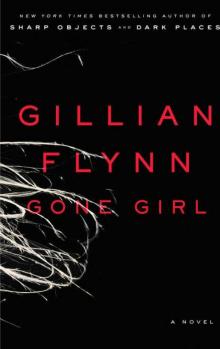 Gone Girl: A Novel
Gone Girl: A Novel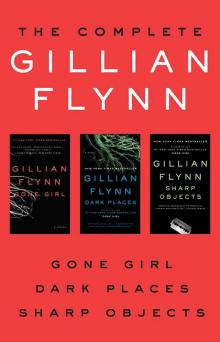 The Complete Gillian Flynn
The Complete Gillian Flynn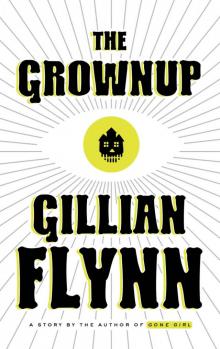 The Grownup: A Story by the Author of Gone Girl (Kindle Single)
The Grownup: A Story by the Author of Gone Girl (Kindle Single)